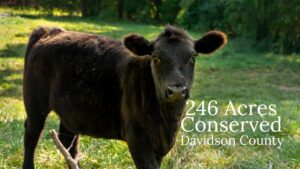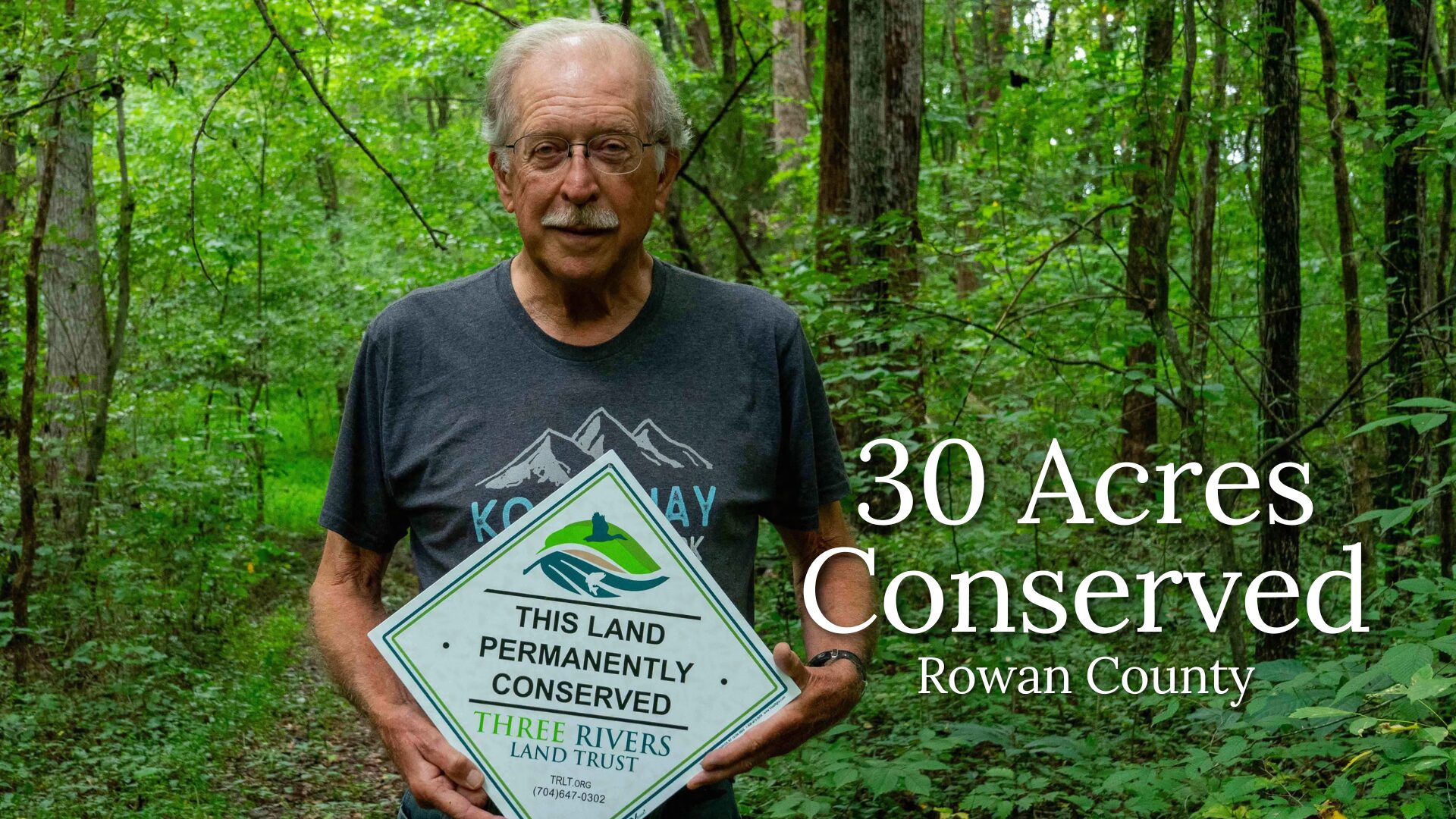

One crisp fall morning, Dr. Michael Baranski looked out over his property and knew he wanted it to remain just as it was now. As a retired ecology professor, Dr. Baranski understands the importance of conservation. So, he and his wife Julia worked with Three Rivers Land Trust to thoughtfully conserve his property from future development.
“I love old forests, natural areas, and undeveloped landscapes. These places are rapidly disappearing due to urban sprawl. I am fortunate to have a piece of undeveloped property, consisting of a significant natural area and some very mature hardwoods. I am choosing to keep the forest intact and all the land undeveloped in perpetuity,” stated Dr. Baranski.
Situated along Fourth Creek, the property consists of old hardwoods and remnant fields. Fourth Creek feeds into the South Yadkin River, the major drinking water source for the residents of Salisbury. In addition to the water quality resources, this woodland boasts over 80% prime or statewide important soils. Many species of wildlife call this well-managed forest home. Conserving this site and its resources will benefit the local community for generations to come.
“The best time to conserve land was 100 years ago, the second best is today,” said Jessie Wilson, Land Protection Specialist. “I am proud to see this property permanently protected because the landowner understands the importance of conserving land in our rapidly developing region.”
Residents will tell you that new housing developments seem to pop up every other week. It is crucial that conservation rates increase alongside development. If our natural resources are not conserved today, they will be lost tomorrow. Without the forethought of willing landowners, future generations may not have old-growth forests, abundant wildlife habitat, and clean streams. Thankfully, the Baranski property will remain undeveloped forever.
“Once land is developed, it is gone forever, and likewise, once it’s conserved, it’s conserved forever. That is why land use decisions are so important and why it is so important to conserve your land before it’s too late.” Travis Morehead, Executive Director.